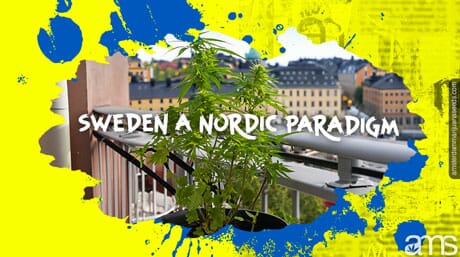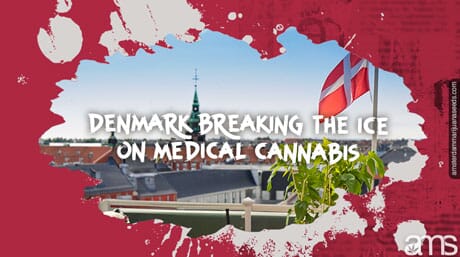In the realm of medical research and politics, the cold, scenic landscapes of Northern Europe are heating up with debates around the growing trend of medical marijuana usage. From the cultivation of the cannabis plant to the use of CBD in health and wellness, this region is demonstrating a shift in societal and political perceptions that are impacting local cultures and beyond.
Sweden: A Nordic Paradigm
Sweden, a nation long known for its juxtaposition of conventional and forward-thinking approaches to healthcare, is currently experiencing an uptick in interest surrounding the use of medical marijuana. Cities like Stockholm, the heart of political decision-making and scientific research, and Gothenburg, with its vibrant and innovative healthcare system, are becoming hubs of debate and investigation in this area.
In Swedish academia, there is an increasing number of scientific studies being conducted around the potential therapeutic applications of cannabinoids. These clinical trials are not only exploring their direct medical benefits but also their impact on healthcare economics. The nation’s current policies on cannabis are strict, with recreational use being illegal, but a growing number of voices are calling for change, particularly when it comes to medicinal usage.
The Swedish Medical Products Agency, known as Läkemedelsverket, approved the use of certain cannabis-based medicines such as Sativex and Epidiolex, which marked a crucial step in recognizing the potential of cannabis in alleviating symptoms for conditions like Multiple Sclerosis and certain forms of epilepsy.

Denmark: Breaking the Ice on Medical Cannabis
In Denmark, particularly in its capital Copenhagen, the conversation around cannabis is evolving from taboo to table talk. The Danish government, 2018, initiated a four-year pilot program allowing the medical use of marijuana for specific conditions. This policy was among the first in Scandinavia, signifying a shift in the region’s attitudes towards cannabis.
Since the program’s launch, a growing number of patients have reported improvements in their symptoms, leading to increased public interest. The resulting medical and societal outcomes of this initiative have been encouraging, with Denmark observing an increased interest in CBD products known for their potential benefits minus the psychoactive effects caused by THC.
This program has also spurred an interest in growing high-quality, medical-grade cannabis within Denmark, with companies like Stenocare leading the way. Danish municipalities like Odense are becoming notable for their cannabis production facilities, aiming to meet both domestic and international demands.

Norway: The Slow, Steady March Towards Progress
Norway, with its capital Oslo, is gradually reforming its stringent drug policies. While the recreational use of cannabis is still illegal, the country has made substantial progress in acknowledging the potential value of medical marijuana, especially for patients dealing with chronic illnesses.
Norwegian lawmakers, researchers, and healthcare professionals are increasingly recognizing the potential benefits of cannabis and its derivatives, particularly for patients with chronic pain, Multiple Sclerosis, and certain forms of epilepsy. However, access remains highly regulated, and doctors can only prescribe cannabis-based medications under specific conditions.
Progress is slow, but the conversation is expanding. The Norwegian Medicines Agency approved the use of Sativex, a cannabis-derived medicine, signaling a critical step towards embracing the medical potential of cannabis.
Finland: A Public Health Approach to Cannabis
Finland, renowned for its commitment to public health, is experiencing a growing interest in CBD and medical cannabis. Major cities like Helsinki and Turku are home to several shops and online platforms offering CBD products, which are gaining popularity as alternatives for pain management and wellness.
The Finnish Medicines Agency, Fimea, allows doctors to prescribe cannabis-based medicines under certain conditions. Yet, there’s a growing demand for broader access. The popular petition in 2019 asking for the decriminalization of cannabis highlighted the public’s shifting attitudes.
While the Finnish government is still cautious about liberalizing cannabis laws, the increased public interest, ongoing global research, and developments in neighboring countries are challenging the status quo.

Iceland: A Land of Contrasts
Iceland, with its capital Reykjavík, presents a unique cannabis landscape. Despite some of Europe’s strictest drug laws, Iceland also reportedly has one of the highest per capita rates of cannabis use. This discrepancy has led to a rising public discourse about the potential medical applications of cannabis and CBD.
While medical cannabis is not yet fully legalized, Iceland allows the prescription of Sativex for Multiple Sclerosis. This approval, though narrow in scope, has opened a small but significant window for medical cannabis in the country.
In contrast, CBD products, despite their non-psychoactive nature, are still considered narcotics under Icelandic law. But this hasn’t stopped an increasing number of Icelanders from advocating for access to CBD and medical cannabis, a testament to the changing perspectives within this island nation.
Across these five Northern European countries, the conversations, laws, and attitudes surrounding cannabis are as diverse as the nations themselves. Yet, a common thread binds them all: a willingness to engage with new ideas and potential solutions for health and wellness, demonstrated by their evolving approaches to medical cannabis and CBD.
These shifting perceptions and changing laws across Northern Europe reflect the region’s increasing openness to the potential benefits of cannabis and its byproducts. The journey of these countries offers a rich insight into the global narrative of cannabis, from its medical applications to its cultural significance.
It’s clear that while each Northern European country has its own unique approach to cannabis politics and culture, the overall trend seems to be toward increased understanding and acceptance. The ongoing research and policy changes in these countries may indeed shape the future of cannabis in Europe and beyond.
As these conversations continue to evolve, it’s important for readers and consumers to stay informed and educated on these topics. By understanding the context and potential implications, we can all be part of a more informed and inclusive discussion around cannabis.
Disclaimer: This content is meant for educational purposes only. It has been compiled with research from external sources. it is not meant to substitute any medical or legal advice. Please see your local laws for the legality of cannabis use.
- SEO Powered Content & PR Distribution. Get Amplified Today.
- PlatoData.Network Vertical Generative Ai. Empower Yourself. Access Here.
- PlatoAiStream. Web3 Intelligence. Knowledge Amplified. Access Here.
- PlatoESG. Automotive / EVs, Carbon, CleanTech, Energy, Environment, Solar, Waste Management. Access Here.
- BlockOffsets. Modernizing Environmental Offset Ownership. Access Here.
- Source: https://amsterdammarijuanaseeds.com/blog/cannabis-northern-europe-medical-trends-politics-culture



